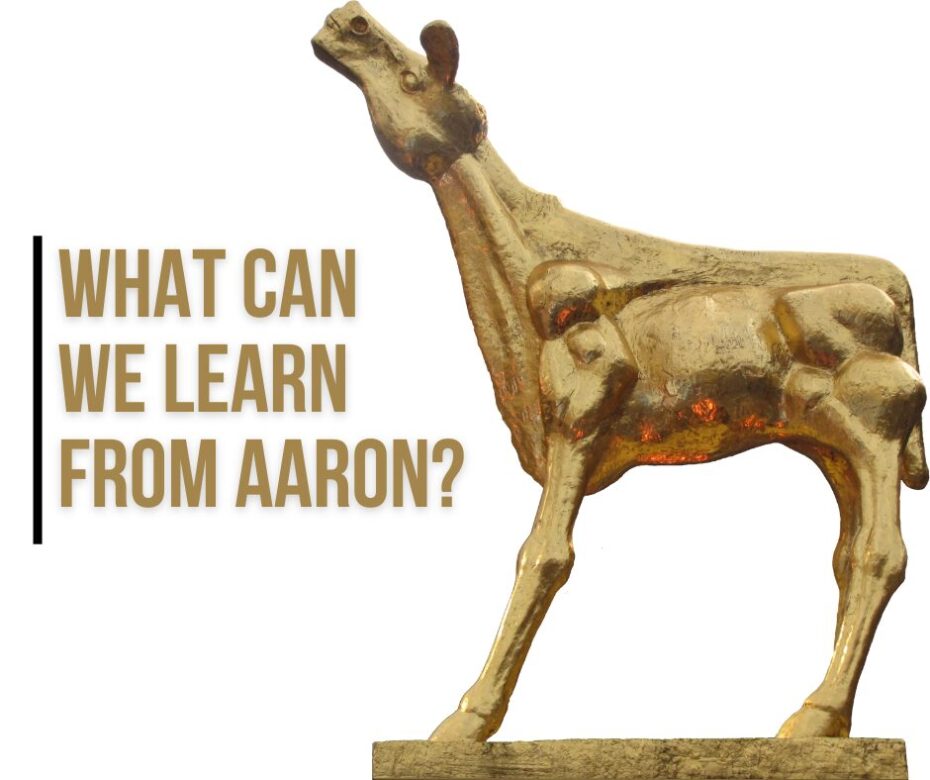Many Biblical accounts surprise us. Exodus 32:1-7 is an example. It is a well-known passage. Moses has gone up Mount Sinai to receive the Law from the Lord. He remains on the mountain for forty days. The people of Israel are at the base of the mountain, under the leadership of Moses’ brother Aaron, who was second-in-charge over Israel.
The nation could not have been in better hands for those forty days. God Himself had chosen Aaron to be Moses’ spokesman in Egypt when Moses faced Pharaoh. Aaron had performed his duties faithfully. He was instrumental in God’s bringing the ten plagues upon Egypt. He had a front-row seat to all God did, including the parting of the Red Sea. Moses trusted his brother, and everything in the Book of Exodus suggests that trust was well placed. Aaron was a prophet of God.
While Moses is on Mount Sinai, the people become restless. Evidently, they decide that Moses is not coming back, and that they need some gods to finish the job of leading them to the Promised Land. They had seen numerous false gods in Egypt, so they’re accustomed to multiple gods. If the God Moses has gone to see on the mountain has abandoned them, they will make another one to take His place.
They go to their leader, Aaron, to make this happen. A first-time reader would probably chuckle at their attempt. It would seem a certainty that Moses’ right-hand-man would never go along with such a blasphemous plan.
That’s why Exodus 32 surprises us. Aaron agrees to their request and even does more than they ask. He instructs them to give him their gold jewelry. He melts down the jewelry and uses the metal to make a golden calf. He builds an altar on which to make sacrifices to it. Finally, he announces that the following day will be a feast day to honor their new god. From what I understand, the celebration probably included sexual sins.
Why did Aaron do these things? It seems that, like the people, he was influenced by his traditions. In Egypt, he too had seen various gods made of gold. Calves were worshiped there. He was comfortable with the idea of polytheism. Sure, the God on the mountain had done great things, but in his mind, in light of Moses’ delay, maybe another god could lend the people a hand and finish what the God who had brought Egypt to its knees had begun.
It’s clear that Aaron’s actions pleased the people. And there were a LOT of people–perhaps around two million. It’s difficult to reject the wishes of so many people when you are standing alone. The text paints a picture of Aaron’s becoming a popular man in the nation. He even turned this breaking of God’s commands into a nation-wide party! Peer pressure can be a powerful force! It always feels good to be appreciated and to receive the world’s applause. Imagine what it must be like to be praised by two million people.
In 1 Corinthians 10, Paul tells the believers at Corinth that they can learn from what happened with the Israelites in Exodus. Believers should take care lest we fall by doing what they did (1 Cor 10:12).
They would include Aaron. As Christians, our traditions and backgrounds can cause us to forget what God has said. The world’s approval can become more important to us than pleasing the Lord. We need to take heed. If it happened to Aaron, we should never think it couldn’t happen to us.


